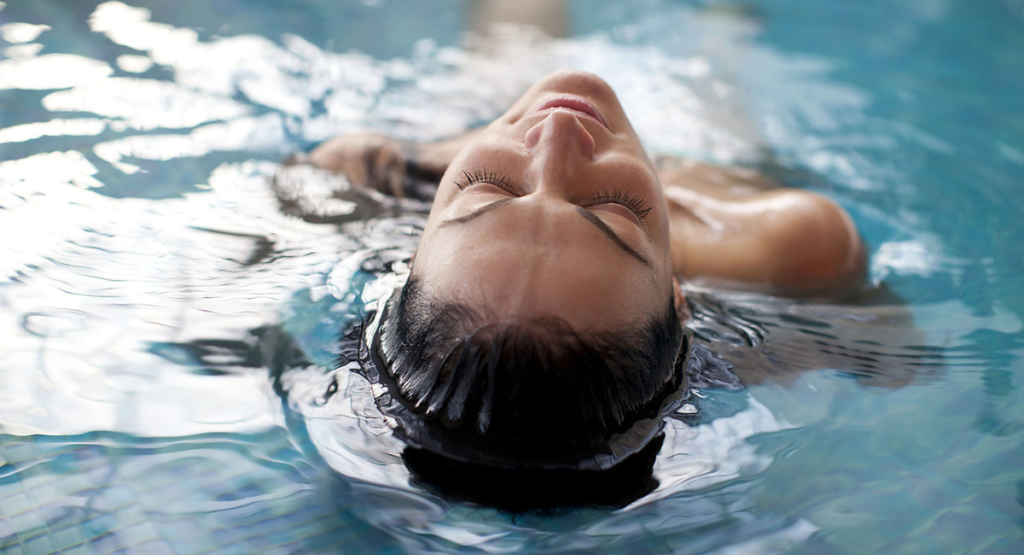Water therapy, a practice harnessing the healing power of water, has emerged as a transformative tool for enhancing well-being. From soothing sore muscles to calming the mind, immersing oneself in water offers a wealth of benefits that extend beyond traditional forms of therapy. In this blog, we delve into the remarkable advantages of water therapy, exploring its potential to alleviate pain, improve flexibility, and promote overall health. Whether you’re seeking relief from chronic conditions or simply looking to enhance your fitness routine, benefits of water therapy offers a versatile and accessible solution. Join us as we dive into the world of aquatic healing and discover how incorporating water therapy into your life can lead to profound improvements in both body and mind.
What is Water Therapy?
Water therapy, also known as aquatic therapy or hydrotherapy, is a form of treatment that utilizes the properties of water to promote physical and mental well-being. It encompasses a wide range of activities performed in water, including exercises, stretches, and relaxation techniques. The buoyancy of water reduces the impact of gravity on the body, making movements easier and less painful for individuals with joint or muscle conditions. Additionally, the warmth and pressure of water can help relax muscles, improve circulation, and alleviate tension. Benefits of water therapy is often used in rehabilitation programs to aid recovery from injuries, surgeries, or chronic conditions like arthritis and fibromyalgia. Whether in a pool, hot tub, or natural body of water, the therapeutic benefits of water therapy offer a gentle yet effective approach to improving overall health and quality of life..
6 Benefits of Water Therapy
Stress Relief
One of the most significant benefits of water therapy is its ability to alleviate stress and tension. As you soak in a warm bath or relax in a pool, the buoyancy of water supports your body, easing the strain on muscles and joints. The sensation of weightlessness, coupled with the soothing sound of water, helps to calm the mind and promote relaxation. Transitioning from the hustle and bustle of daily life to the tranquility of water therapy can provide a much-needed escape from stress.
Improved Circulation
Water therapy can also enhance circulation, which is crucial for delivering oxygen and nutrients to cells throughout the body. Immersion in warm water causes blood vessels to dilate, allowing blood to flow more freely. This improved circulation can help to reduce swelling, promote healing, and alleviate symptoms of conditions such as arthritis and varicose veins. Whether you’re soaking in a hot tub or swimming laps in a pool, the gentle pressure of water against the body stimulates circulation, leaving you feeling rejuvenated.
Pain Management
For those suffering from chronic pain, benefits of water therapy offers welcome relief without the side effects of medication. The buoyancy of water reduces the impact of gravity on the body, making movement easier and less painful. This makes water therapy an ideal exercise option for individuals with conditions such as fibromyalgia, back pain, or joint stiffness. Additionally, the warmth of the water can help to soothe sore muscles and ease tension, providing natural pain management without the need for drugs.
Increased Flexibility
Regular participation in water therapy can lead to improved flexibility and range of motion. The resistance of water provides a gentle yet effective way to strengthen muscles and improve joint mobility. Whether you’re performing aquatic exercises or simply moving through the water, your muscles are challenged in a supportive environment. Over time, this can lead to greater flexibility, making everyday activities easier and reducing the risk of injury.
Enhanced Mental Well-being
Beyond its physical benefits, water therapy can also have a profound impact on mental well-being. Immersing oneself in water has been shown to release endorphins, the body’s natural feel-good hormones, which can elevate mood and reduce feelings of anxiety and depression. The sensory experience of water therapy, from the soothing warmth of a bath to the rhythmic motion of swimming, provides a therapeutic escape from the pressures of daily life. Transitioning from the chaos of the outside world to the serenity of water can promote a sense of calm and balance.
Better Sleep
Struggling with sleep? Water therapy might be the solution you’ve been looking for. The relaxation induced by soaking in warm water can help to prepare the body for sleep by lowering stress levels and promoting muscle relaxation. Additionally, the rise and fall of body temperature that occurs during water therapy can mimic the natural sleep cycle, making it easier to drift off and stay asleep throughout the night. Incorporating a soothing bath or swim into your bedtime routine can help you unwind and enjoy a more restful night’s sleep.
Rehabilitation and Recovery
Benefits of Water therapy is widely used in rehabilitation settings to aid in the recovery process following injury or surgery. The buoyancy of water reduces the strain on injured or weakened muscles and joints, allowing for gentle movement and exercise. This can help to maintain or improve strength, flexibility, and range of motion while minimizing the risk of further injury. Whether you’re recovering from a sports injury or undergoing post-surgical rehabilitation, water therapy can play a vital role in restoring function and speeding up the healing process.
Conclusion
In conclusion, the benefits of water therapy are vast and varied, offering both physical and mental improvements for those who incorporate it into their wellness routine. From stress relief and improved circulation to pain management and enhanced flexibility, water therapy has something to offer everyone. Whether you prefer a leisurely soak in the tub or an invigorating swim in the pool, taking the time to immerse yourself in water can have profound effects on your overall health and well-being.
We are India’s first comprehensive continuum care provider. We provide multidisciplinary out of hospital care to acute and post-acute and chronically ill patients at our critical care facilities and your home.


